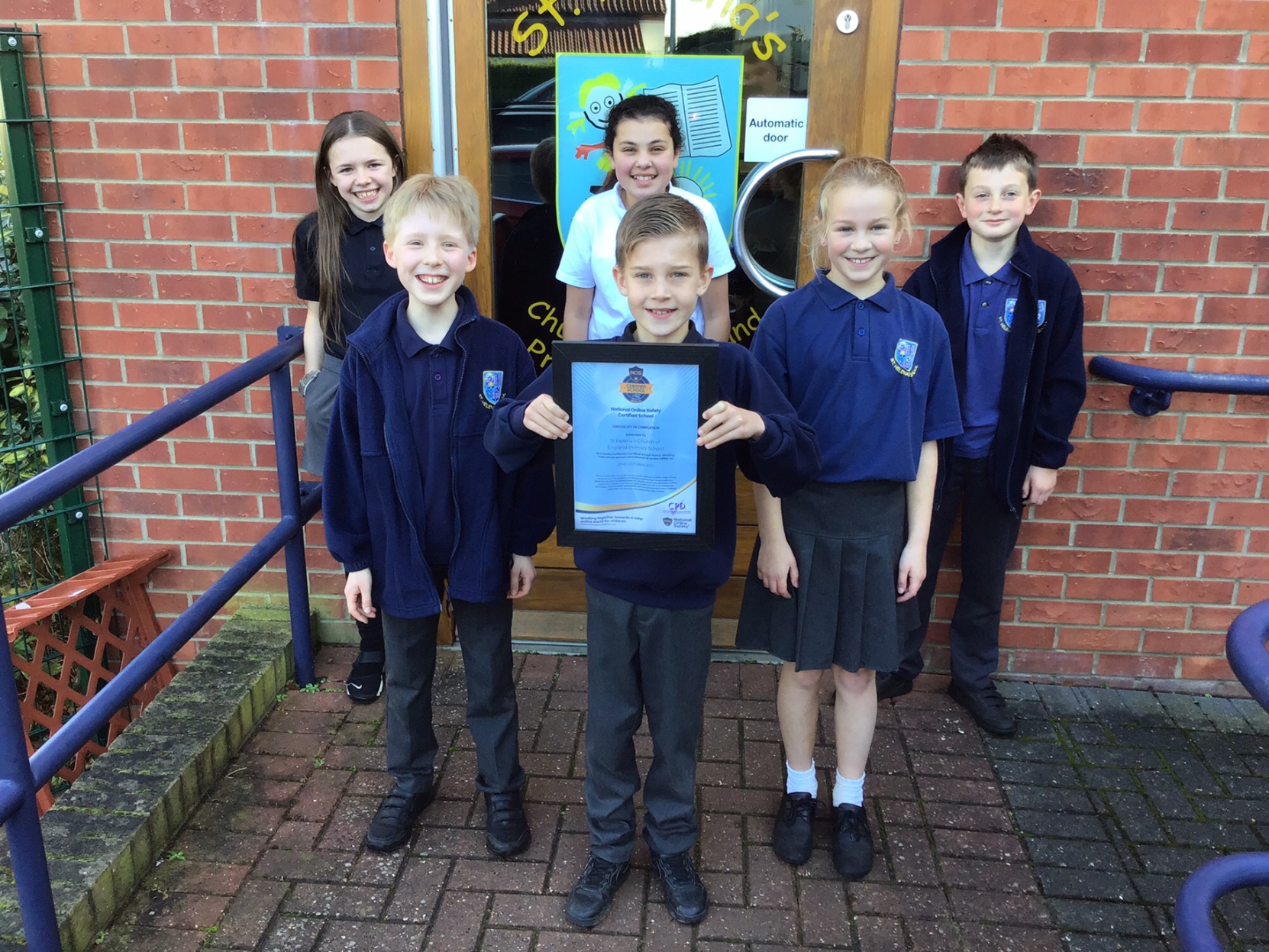Online Safety

Why is Online Safety significant to our children?
The current generation are the first children to grow up in a world where digital devices are the norm. Recent studies have found that 88% of British 11-year-olds have a smartphone. Four out of ten 6-year-olds own a tablet. And almost two-thirds (64%) of children aged 7-11 use a games console. It’s now rare to find a child who doesn’t regularly use internet-enabled technology.
What is St Helena’s approach to Online Safety?
Keeping children safe online has become a new focus at St Helena’s in recent times, particularly considering remote learning provision and the continued focus on developing the use of technology for learning in school. In 2020, we became members of National Online Safety – a platform that provides school with training, teaching resources and up-to-date, informative guides for parents. We received our accreditation as a “Certified School” with NOS in October 2020.
As part of the teaching of the Computing and the new PSHE curriculum, the subject of Online Safety can be broken down into eight strands, each of which are taught annually from Reception to Year 6. These eight strands include:
- Online Bullying
- Online Reputation
- Self-Image and Identity
- Managing Online Information
- Health, Wellbeing and Lifestyle
- Privacy and Security
- Copyright and Ownership
- Online Relationships
Throughout their time with us in school, the children will develop their understanding of: managing online content; identifying “fake news”; using social media safely; reporting online bullying or unwanted content and how to behave appropriately when using technology. This learning is embedded in Computing and PSHE lessons throughout each year. We support our parents via Parent Mail and the school Facebook page with regular updates and guides on the latest trends, apps, games and behaviours that our children may be using or be exposed to.
You can find in this section a collection of our frequently requested parental guides, alongside a story that could be shared with children as part of their journey to becoming safe digital practitioners.
What are “Video Chat Rooms”?
One of the riskiest forms of online media, that our children can have easy access to, are live video chatrooms. Omegle and Chatroulette, websites that have been accessible for over a decade, are two such platforms.
The websites allow for unsolicited, explicit, live webcam footage to be streamed by any user from around the world, one to one, with another. There is no facility to use the websites in a similar way to Zoom or Skype for chatting with friends or family; both sites match their users up with a random stranger, usually an adult, to immediately stream their camera feed and chat with. No logins are required for either site, just a device with a camera facility such as a mobile phone, tablet or laptop. The websites are infamous for being platforms for performing and sharing explicit, inappropriate content live on camera.
The immediate advice from school would be for these websites to be blocked on your home computers and WIFI networks; there is no safe way for children to use these websites or any reason for anyone under the age of 18 to be using them.
You can find more information with our helpful parent guides. If you wish to raise any online safety concerns or queries, please contact school for advice and support.
Our Case Study:
Please read the case study on our school produced by National Online Safety in November 2020 below https://blog.nationalonlinesafety.com/news/st-helenas-case-study








